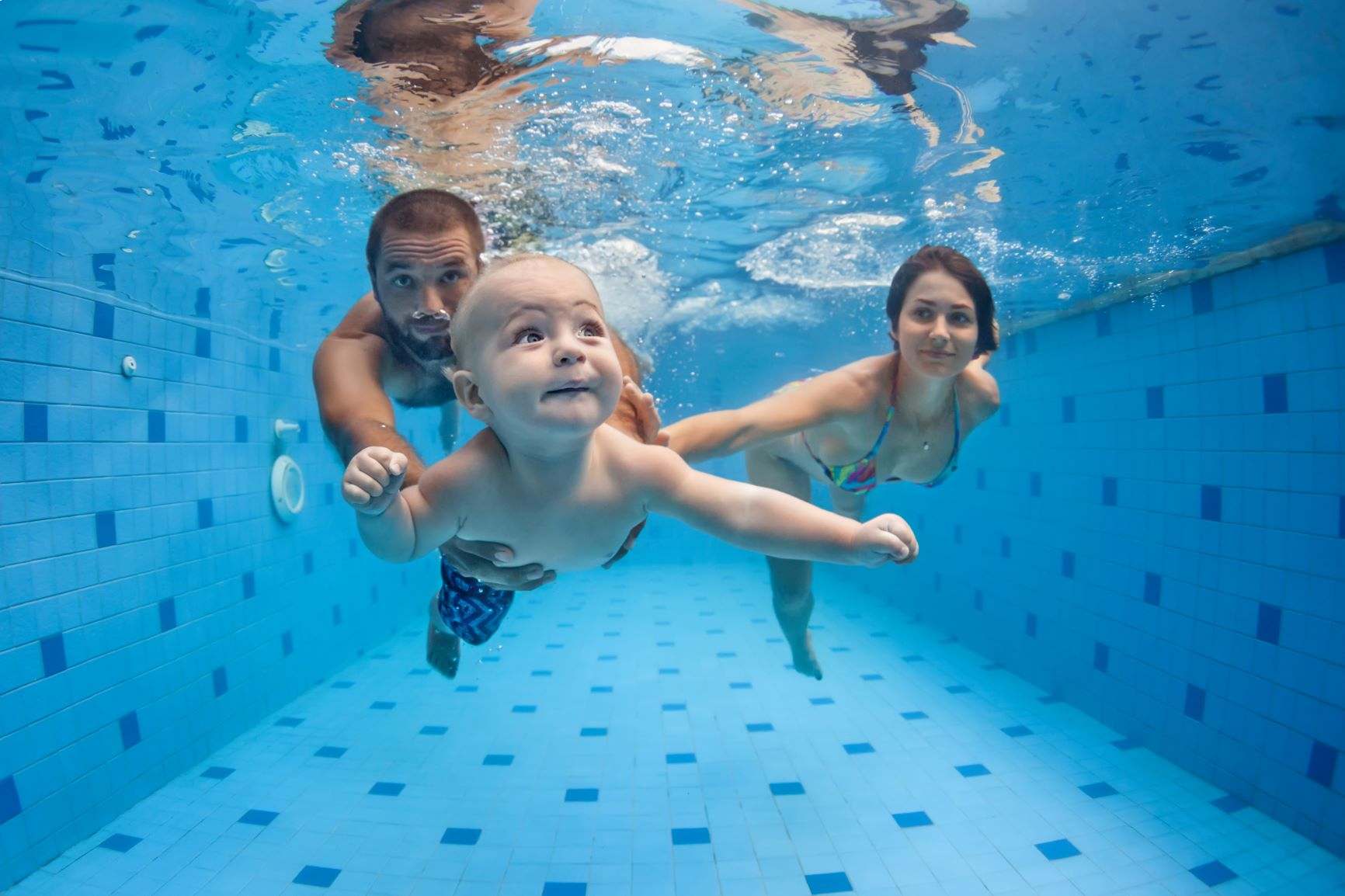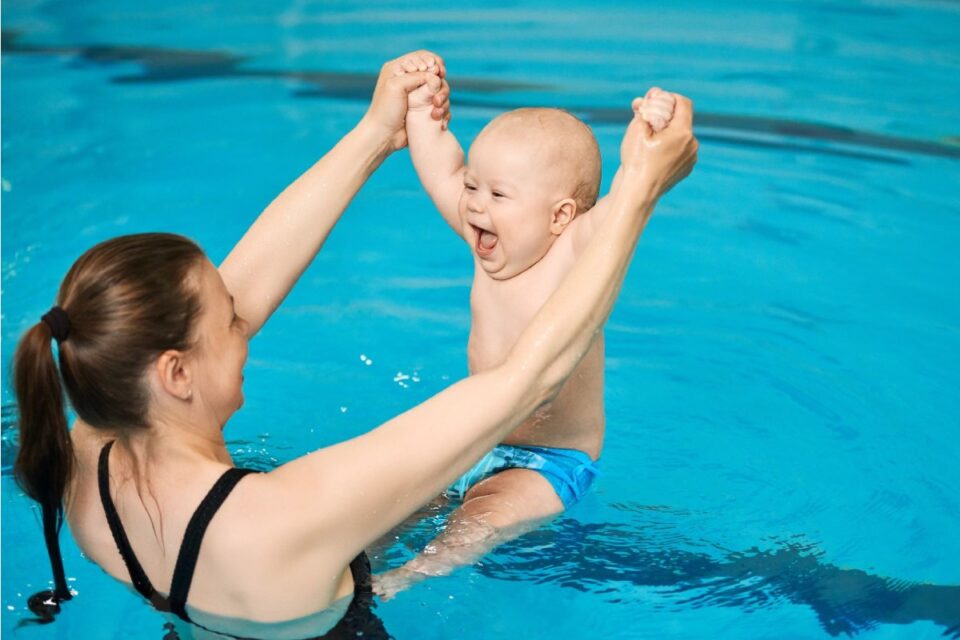Learning how to swim isn’t just a skill that you equip to have fun in the water. It’s a necessity for survival. Everyone must learn how to swim so that they can survive any possible accidents. In light of this, you and your family should learn how to swim, including your baby.
If you think that your baby is too young to learn how to swim, you should reconsider. In the United States, drowning is the primary cause of children’s injuries and deaths from one to four years old. Aside from survival, there are a ton of benefits of baby swimming that could help them. They could also develop their motor skills and build muscle.
Table of Contents
 Earliest Age to Teach How to Swim
Earliest Age to Teach How to Swim
Some people already teach their child the “self-rescue” technique as early as six-months-old, which allows the baby to kick, turn, and float on their backs and wait for rescue. With this technique, you’ll be confident that your baby would be able to survive deep water just in case of an accident.
However, if you aim to teach children how to swim, the American Academy of Pediatrics (AAP) supports one-year-old children to take swimming classes. Your child must show signs of pool readiness and sufficient water exposure to allows them to kick and paddle before taking them in for a class.
Be Equipped with the Right Skill
Before teaching your child how to swim, you should know how to perform CPR for babies and learn how to do first aid, as well as have a kit ready near the pool.
You must anticipate any possible accidents, so that you can be well-prepared if anything happens and be equipped with the right skills to prevent further damage.
Moreover, you should be confident in teaching your child how to swim and completely know what you’re doing from start to finish.
Also Read: Studying the Benefits of a Calorie Deficit
Introduce Your Baby with Swimming
The first thing you must do before teaching your child to swim is to introduce them to water. It’ll be difficult, and could be traumatizing for your child if you’ve pushed them to swim when they’re not ready.
- Go Steady – Seeing a large pool can be frightening for children, most especially if it’s their first time seeing one. What you can do is to slowly introduce your baby to the water in a relaxed mood. You can try dipping your child’s feet in the pool so that they get used to the temperature, and the feel of water on their body.
- Go Slow – After your child has enjoyed having their feet in the water, try to take it deeper little by little; to their knees, waist, and chest. You should never leave your child alone, even if the pool is within their height. There could be instances where they’ll slip over and drown.
- Have Fun – To help your baby enjoy the water, bring their favorite bath toys or play a game wherein you hold your baby right below their armpits and move across the pool. If they’re having fun, you can pump up the pace a little bit.
- Don’t Force It – If they get upset or unhappy being in the water, get them out of there and make them comfortable. They’ll only get negative feedback from the pool if you push them to swim.
Your baby must be comfortable in the water before you can thoroughly teach them how to swim as it can be a traumatizing event for them, most especially if they’re not a fan of water.
Teach Your Baby How to Swim
If you have no idea how to teach children how to swim, you must sign up your child to take swimming lessons. Don’t worry; there are individual swim lessons available that offer one-on-one interaction, allowing your instructor to give their full attention to your child. With group lessons, parents are with their babies by their side to guide and make them more engaged.
Suppose you’re confident in teaching your child on your own; what you can do is sit your baby on the edge of the pool while you’re in the water and tell your baby to jump while holding their hands. They should be able to go underwater, but if they’re not ready to go underwater, only allow them to be chin-deep, and lift your happy baby.
You should also teach your child how to be comfortable underwater and learn to hold their breath for a more fluid swimming lesson.
Conclusion
When they’re ready, you can teach your child how to swim to equip them with survival skills and improve their motor skills. It can be scary, but it’ll be a swim experience for the whole family and helps seniors stay fit.
Other Helpful Resources:
How To Choose The Right Hearing Aid

